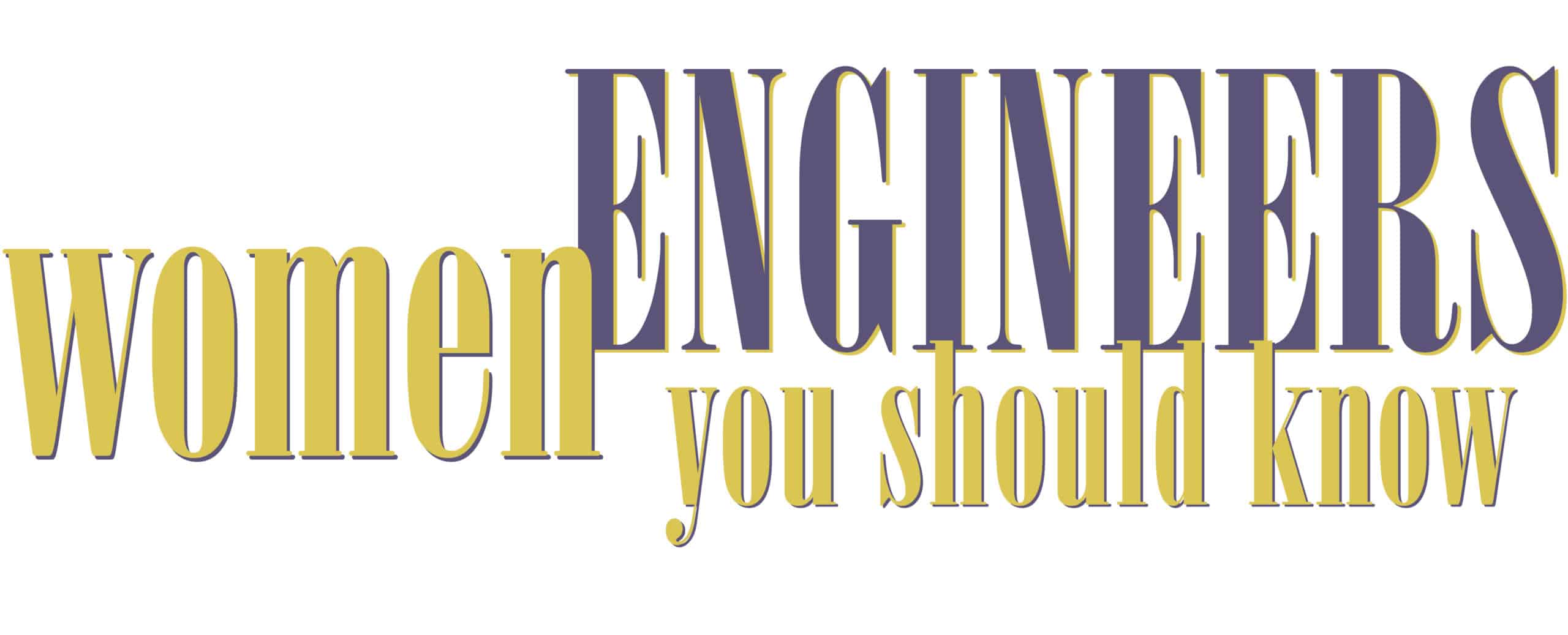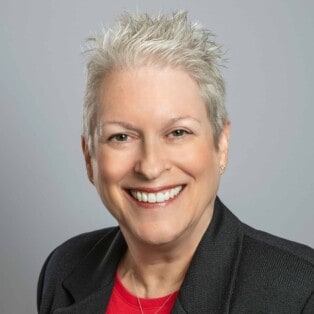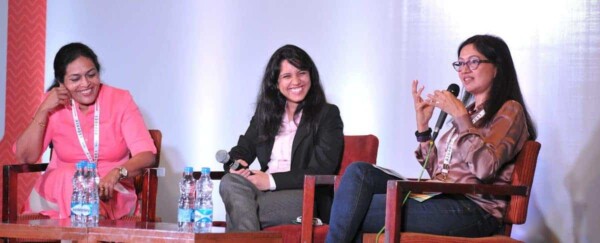Women continue to make inroads in many areas of the engineering profession, whether taking the traditional route of progressing through the ranks of a company or deciding to map their own engineering path through entrepreneurship.
These women code and analyze data; they teach and mentor. These women uncover problems and produce solutions. These women build software applications, lead companies, and design wind turbines. Their expertise ranges from artificial intelligence and machine learning, to cybersecurity and satellite mapping; and from data analytics and manufacturing, to developing robotics for space exploration.
To celebrate the contributions of women engineers, SWE Magazine contacted its social media channels to pose the question: “Who are the women engineers we should know?” SWE sought to know the women engineers whom we could add to our ongoing project begun in 2015, about women who are not typically in the spotlight but are making meaningful, even substantive, contributions in their workplaces, communities, and beyond.
As with previous installments, determining the final list was quite challenging, given the depth and breadth of the candidates. Our selections are not meant to be definitive.
Celeste Fralick, Ph.D.
Lubbock, Texas
Biomedical Engineer. Author, Blogger. Senior Principal Engineer. Chief Data Scientist. Artificial Intelligence (AI) and Cybersecurity Expert. Celeste Fralick, Ph.D., has taken on these roles and more. These days she works for McAfee, one of the world’s leading cybersecurity firms. She is the senior most technical woman in the company, focusing on machine learning, deep learning,
and AI development and analytics strategy in cybersecurity.
Dr. Fralick spearheads McAfee’s technical analytical strategy that integrates into its enterprise and consumer products. She also chairs McAfee’s Analytic Center of Excellence, and oversees the company’s internal business intelligence.
Prior to McAfee, Dr. Fralick spent more than two decades with Intel, where she held numerous leadership positions. A chief data scientist in Intel’s Internet of Things (IoT) group, she developed machine learning and deep learning analytics for more than eight different markets. She also was a technical leader in Intel’s data science and biotech strategies, product qualification, and product life cycle programs.
Named to Forbes’ Top 50 Women in Tech in 2018, Dr. Fralick is active in various industry and academic boards, and serves on journal editorial staffs, and consortiums. She co-authored the book Intelligent Analytics: Bringing Analytics to the Internet of Things.
Dr. Fralick earned a Ph.D. in biomedical engineering from Arizona State University, concentrating on predictive analytics and neuroscience. This background, along with her penchant for statistics, prepared her for the work she’s done for nearly 40 years. Her experience spans analytics; systems; IoT engineering; semiconductor process and product development; and regulatory, medical device, and quality/reliability domains.
A stage 4 breast cancer survivor facing lifelong chemotherapy, Dr. Fralick began her career as a quality engineer with Texas Instruments. Her first assignment was to deploy statistical process control, a manufacturing data science technique that monitors and controls quality during the production process. The assignment spawned her interest in manipulating data, statistics, and other techniques, and led to further study in advanced statistics, neural networks, and artificial intelligence.
In addition to her work at Texas Instruments, Dr. Fralick has led corporatewide process and product development efforts at Medtronic and Fairchild Semiconductor.
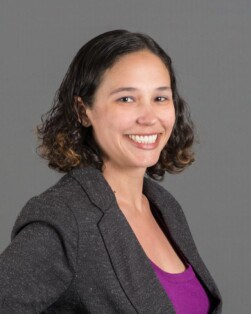
Diana Hugue, P.E.
Baltimore
Diana Hugue, P.E., is a senior fire protection engineer at Jensen Hughes, a global engineering consulting company headquartered in Baltimore that specializes in risk assessment and solutions. Hugue joined Jensen Hughes in 2013 to analyze code requirements and intent relating to the fire and life safety design of structures. She has a B.S. and an M.Eng. in fire protection engineering from the University of Maryland, College Park.
Considered an expert in the health care industry, her experience includes conducting in-depth reviews and developing design solutions for new and existing buildings.
She also evaluates health care facilities to ensure they meet the requirements of local, state, and federal standards, including the Centers for Medicare & Medicaid Services and The Joint Commission. She also supports a contract with the Office of the Pentagon Fire Marshal, assisting with engineering analyses and safety outreach initiatives, among other services.
At Jensen Hughes, Hugue initiated involvement in the Society of Women Engineers Baltimore-Washington Section and established the Jensen Hughes Women in Tech group to encourage women to have a broader involvement in engineering. The group sponsors outreach, professional development, recruiting, and networking activities.
Women in Tech also provides space for women at Jensen Hughes to share ideas and initiate programs that benefit the community. They often work with area middle schools to show girls the opportunities available in STEM.
Outside of Jensen Hughes, Hugue enjoys professional affiliations with the Society of Fire Protection Engineers, the National Fire Protection Association, and U.S. Women in Nuclear. She also is a member of the Salamander Fire Protection Engineering Honorary Society.
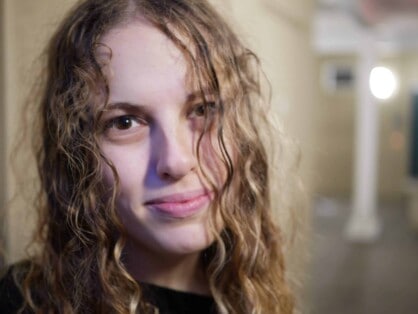
Beth Anne Katz
Sunnyvale, California
Beth Anne Katz is more than a technical program manager at Microsoft’s Sunnyvale, California, campus. She’s also an unwavering advocate for mental health support, having been diagnosed with depression as a teen.
Eager to move beyond her diagnosis, Katz chose to attend university and was a double major in electrical and computer engineering and Hispanic studies at Carnegie Mellon University. In her first year, she landed a technical internship with Goldman Sachs with almost no coding experience. She went on to intern at Disney, Google, and Microsoft. She also earned scholarships from Microsoft, Xerox, The Boeing Co., Schlumberger, and NASA.
In addition to her internships and academic pursuits, Katz was a resident assistant and teaching assistant at Carnegie Mellon. She was also involved in the SWE student section and the IEEE student chapter.
Upon graduation in 2014, Katz returned to Microsoft full time as a technical product manager. She has contributed to features across Windows and Office, including working on Microsoft’s fastest-growing product, Microsoft Teams, while working in its Prague office. She currently works on PowerPoint in Sunnyvale.
It has taken time, but Katz has accepted her depression diagnosis and has worked to stem the stigma around mental illness. In 2016, she recorded a YouTube video of her diagnosis and her decision to take antidepressants. She retold her story in an internal publication at Microsoft. So popular was her story, Microsoft shared it publicly. That company colleagues and leadership were supportive proved a turning point for her.
Katz founded Katzbe Fights Depression, a 501(c)(3) nonprofit dedicated to using content creation to address the mental health stigma. She manages a Facebook page with more than 4,000 followers, where she shares info and hosts an online mental health support group.
Her mental health advocacy and technical work has been featured in Thomson Reuters, The New York Times, Thrive Global, Authority Magazine, and IoT For All. In 2018, Katz received an award from the National Alliance on Mental Illness.
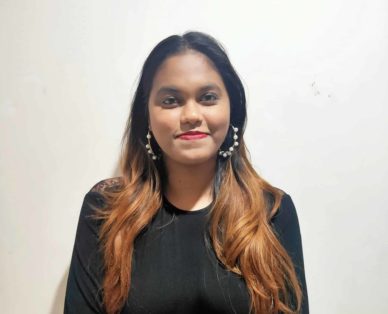
Anubha Maneshwar
Chhindwara, India
When her father died during her second semester in college, Anubha Maneshwar recalled something he told her: “A good artist does not need a stage to perform but talent.” With that she decided she wanted to do something good in life.
That good blossomed into India’s biggest tech education organization, known as GirlScript. Established less than three years ago, the Section 8 nonprofit company has already had a transformative impact on India. Yet Maneshwar’s road to becoming a successful young entrepreneur had an uneven start.
Despite doing well on state engineering exams, she twice failed the JEE, India’s Joint Entrance Examination for students seeking admission to engineering schools. Undeterred, Maneshwar enrolled at Nagpur University.
She received sponsorship to attend the International Women’s Day event at Google Hyderabad. Through this experience, she learned about opportunities within the tech industry. She volunteered at the Mozilla Foundation and collaborated with more than 15 startups, including Django Girls, UPAY, and Procter & Gamble.
Although she earned a B.E. in computer engineering, many doubted Maneshwar’s skills and abilities because Nagpur University is not in the top tier of Indian universities. Being a young Indian woman didn’t bode well either, as India traditionally doesn’t support women’s education. Maneshwar pursued additional training and posited how she could improve the educational system in India and help other young women pursue their academic interests.
Maneshwar, who considers herself an educator more than an engineer, formed GirlScript to support women’s education through mentorship, hands-on classes, internships, and boot camps. Programs are open to all, with particular focus on women new to technology and programming. GirlScript operates in 56 cities in India, impacting more than 30,000 beginners. It also promotes diversity by reserving 50% of its seats for women and those who identify as LGBTQ in all its programs worldwide.
Her visionary efforts have taken Maneshwar to the TEDx stage for a talk, ‘‘Phases of Education in Placement Cell.” She’s also been an invited speaker at PyCon North America; the Wonder Women Tech Global Summit, Washington, D.C.; and roughly 150 other national and international events.
She received the Indian Women Leadership Excellence Award for Education, 35 Under 35 Best Startup in Education award, India’s Top 100 Young Leaders Award, and the Technology Playmaker Award UK. In addition, Maneshwar was named to the Forbes 30 Under 30 Asia Class of 2020 in social entrepreneurship for leveraging business tools to solve the region’s problems.
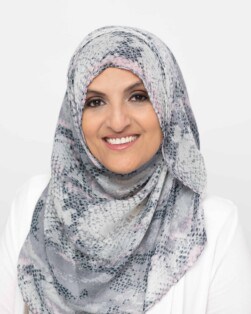
Aneesa Muthana
Addison, Illinois
Aneesa Muthana did not set out to be an entrepreneur, let alone own a manufacturing business. Yet she is president, CEO, and co-owner of Pioneer Service Inc., a machine shop in the Chicago suburb of Addison, Illinois. What started as a shop with screw machines and centerless grinders is now a manufacturing company providing precision-machined parts to clients in diverse industries, including oil and gas, hydraulics, electric vehicles, firearms, medical and dental, and aerospace. Pioneer Service also is a privately held, certified women-owned and operated small business.
Muthana, who attended the College of DuPage, a community college in Glen Ellyn, Illinois, learned about manufacturing from her Yemeni immigrant parents, who owned a centerless grinding shop. Her parents introduced her to all aspects of the manufacturing business, but her mother — who came to the states knowing no English and with no formal education — stressed the importance of a strong work ethic.
At 23, her uncle took notice and asked her to join Pioneer, a Brown & Sharpe shop he owned that made parts for heating and cooling systems. Already confident and adept in different facets of the business, she consented to take over his shop, conditioned that she become president and he a silent partner. Her uncle agreed.
Employees at the time made the parts by hand. Pioneer’s new workforce brings a different set of skills to the manufacturing floor: technology. When she took over Pioneer, Muthana expanded its capabilities and how people worked. Faced with competition from other manufacturing companies, Muthana invested in technology and automation to become safer, more efficient, and more competitive. She also invested in her workers, offering them opportunities to learn new technical and computational skills to use at Pioneer.
At the onset, she wanted an inclusive work environment, recruiting and training women to work at Pioneer. About 40% of her employees are women. To ensure Pioneer and the overall industry remains viable, Muthana attends college fairs to identify potential workers to promote manufacturing as a worthwhile career. She also espouses the benefits of the industry as a member of Windy City Professional Speakers. She sits on the boards of the Precision Machined Products Association, the Illinois Manufacturing Excellence Center, and the Chicago Regional Growth Corp., among others.
Her accolades are many. Among them, Crain’s Chicago Business named her to its list of Notable Women in Manufacturing in 2019 and 2020. The distinction recognizes women who are making a difference in the traditionally male-dominated field. The Yemeni American Merchants Association in February named her Outstanding Business Leader of the Year, crediting her with leading from the heart through her volunteer efforts with the Red Cross and her advisory role with her alma mater, the College of DuPage.
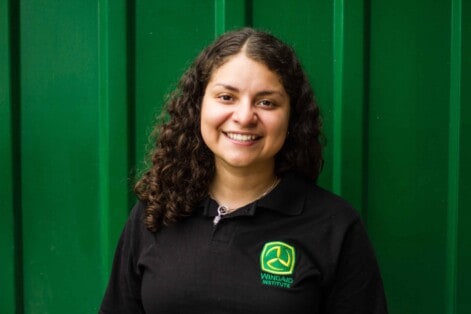
Jessica Rivas
Trujillo, Perú
As a first-generation college student at Texas A&M University, Jessica Rivas traveled to Chile for a senior design project, and later to Trujillo, Perú, to gain firsthand knowledge about the culture and lifestyle of another country, and to heighten her understanding of and newfound interest in small scale renewable energy.
Her four weeks in Perú proved life changing — so much so, that Rivas transformed her volunteer experience into a well-regarded nonprofit alongside her friends. The electronic and engineering technology major established the WindAid Institute in 2014. The organization focuses on meeting the needs of under-served populations and helping communities discover ways to use renewable energy when other resources are lacking.
The six-year-old nonprofit functions as an educational organization whose projects provide electricity in places where traditional electricity is scarce. The projects require wind energy via small wind turbines in order to provide a clean and renewable source of electricity. These efforts help communities improve their standards of living, classroom and teaching conditions, and support the growth of startups and small businesses.
The first turbine project Rivas led was for a small community in Pastoruri, Perú, a national park in Huaraz. The turbine was installed at 4,877-meters high, or about 16,000-feet tall. This turbine broke the Guinness World Record for being the highest-altitude wind generator. Today it powers 10 different huts for a community with no other access to electricity.
Rivas, along with professionals and students from all over the world, joins community members to design, build, and install wind generators in rural communities around Perú. The idea behind community involvement stems in part from her own volunteer endeavors working alongside residents in every phase of a turbine project. The idea is that each project will contribute to the evolution of the design or reinforce the solidity of the design concepts, thus engaging an environment of education and innovation.
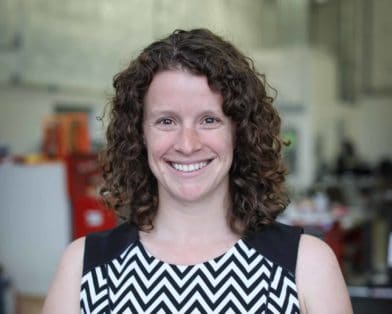
Maggie Scholtz
Seattle
The planet Mars has always been full of wonder and intrigue for Maggie Scholtz, capturing her attention while she was a high school student. It’s not that she envisioned taking a space mission there; rather, she aspired to design hardware that could be used on what’s often termed the “Red Planet.”
Her aspiration became a possibility when she enrolled at Carnegie Mellon University. Her activities there centered on her interest in engineering: the robotics club, astronomy club, and the student section of the Society of Women Engineers. Summer internships at the NASA Jet Propulsion Laboratory (JPL) brought Scholtz even closer to her goal.
After graduating from Carnegie Mellon with a B.S. in mechanical engineering, she landed a full-time position with JPL and developed robotics for space exploration. She worked for seven years on the Mars Curiosity rover and the Mars 2020 mission. In honor of her exemplary work on Curiosity, the Earth-based engineering model of the Mars Curiosity rover used for testing was named Maggie. Scholtz later joined the forthcoming Mars 2020 mission team, and began the challenge of taking core samples on Mars for future return to Earth, the first time that samples would be brought back for analysis.
Scholtz had a short stint at Planetary Resources Inc., whose mission was to create a preliminary design for an asteroid surface penetrator that could deliver and operate two instruments below the surface. From Planetary Resources, Scholtz took her skills to another level and founded First Mode, a consultancy that applies the tools and technologies of planetary and deep space exploration to some of the world’s most challenging problems.
At First Mode, she leads a team of practiced engineers across a mix of disciplines, who regularly tackle unknown engineering challenges, including asteroid resource extraction modeling, drilling, and negotiating resources across complicated systems. First Mode allows Scholtz to continue her work on space programs, including NASA’s Psyche mission, described by the JPL as “a journey to a unique metal asteroid orbiting the sun between Mars and Jupiter.”
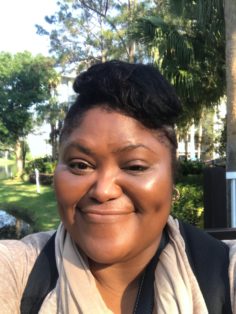
Louvere Walker-Hannon
Boston
MathWorks application engineer Louvere Walker-Hannon is essentially an advocate for educating and training women in technology, particularly young women and those from underrepresented groups. She lends her voice and her expertise in artificial intelligence, deep learning, machine learning, image processing, and diversity to a range of audiences and causes.
Walker-Hannon is a graduate of Boston University, where she earned a B.S. in biomedical engineering, and of Northeastern University, where she earned a Master of Professional Studies in geographic information technology with a specialization in remote sensing. Her educational background and computational acumen, coupled with an instinctive desire to teach others, enables her to translate technical language and information to both technical and nontechnical audiences. In other words, she speaks two programming languages — one for the professional and another for the novice.
At MathWorks, a leading developer of mathematical computing software for engineers and scientists, Walker-Hannon provides direction, solutions, and recommendations on technical workflows and a range of applications, from MATLAB/C/C to HTML to Python. Throughout her more than 20 years with the company, one thing has remained constant: STEM education and sharing its significance and impact with young people.
Active in the Grace Hopper Celebration of Women in Computing conference and the Open Data Science Conference, among others, Walker-Hannon has been a keynote, presenter, guest speaker, and workshop leader, drawing capacity-filled audiences in person and in digital spaces.
Walker-Hannon has a long history of serving as a STEM mentor through her association with the Society of Women Engineers, the National Society of Black Engineers, and the Boston chapter of Black Girls CODE. She leads teams of MathWorks STEM ambassadors year-round, developing and participating in science-related programs in Boston-area schools, including science fairs, career days, STEM demonstrations, and other activities. She serves as the curriculum lead for Black Girls CODE, making sure content prepared for events is relevant and current. She also belongs to IEEE and the American Meteorological Society.
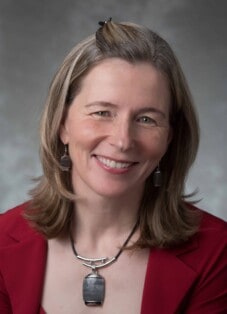
Mary Wells, Ph.D.
Ontario, Canada
As dean of the College of Engineering and Physical Sciences at the University of Guelph, Mary Wells, Ph.D., holds a prime position to champion a cause she holds dear: to increase the representation of women in engineering fields.
She is widely respected for attracting, engaging, and retaining women in the engineering industry. She’s also noted for strategic leadership in building collaborative relationships within a university setting that breeds opportunities and empowers women, researchers, faculty, and staff.
For more than a decade, Dr. Wells has led initiatives that address the persistent underrepresentation of women in engineering. She recently completed a five-year term as president of the Ontario Network of Women in Engineering, a collective of 25 institutions that provide resources and programming for current and future women engineers.
She chaired the Conference of Metallurgists in 2015, along with the Aluminum Alloys conference in the states. This led to the Women of Impact in the Canadian Materials, Metallurgy, and Mining Field project to recognize and chronicle the experiences of leading women engineers in Canada. This led to the Women of Innovation symposium and a peer-reviewed book presented at the metallurgists conference in 2017. The book features oral histories from 18 remarkable women engineers in mining, metallurgy, and materials in Canada.
Dr. Wells is active in the Metallurgy and Materials Society of CIM (the Canadian Institute of Mining, Metallurgy, and Petroleum). Her varied outreach activities earned Dr. Wells the Natural Sciences and Engineering Research Council of Canada Award for Science Promotion, and the prestigious Support of Women in the Engineering Profession Award from Engineers Canada.
She holds a B.Eng. from McGill University and a doctorate from The University of British Columbia. Her research focuses on the development and manufacturing of advanced metallic products used in the transportation sector.
Dr. Wells began her academic career in the department of metals and materials engineering at The University of British Columbia. In 2007, she joined the University of Waterloo’s department of mechanical and mechatronics engineering as a professor. She was named inaugural associate dean of outreach in 2008 and continued in this additional role until her appointment at the University of Guelph. Starting July 1, 2020, Dr. Wells will become dean of the faculty of engineering at the University of Waterloo, Canada’s largest engineering faculty.
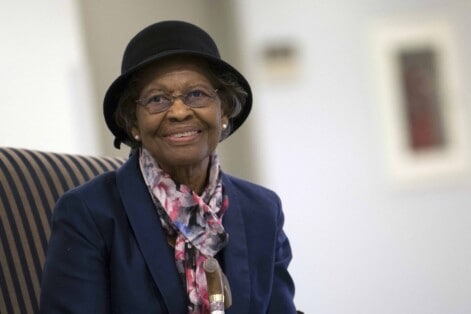
Gladys West, Ph.D.
King George County, Virginia
Globes and paper maps that you can unfold and chart your way into new territory have been sidelined by technology in the form of the global positioning system, or GPS. The software is now installed in handheld digital devices and built into the navigation systems of today’s vehicles.
The GPS was developed in the 1950s, functioning apart from the public’s purview. Its intricate computations and satellite recordings were developed at the hands of a small team of scientists and engineers. This team included mathematician Gladys West, Ph.D., an African American woman who saw a future beyond the cotton, tobacco, and corn fields in Dinwiddie County near Richmond, Virginia, where she grew up. Math proved her best subject and the gateway to an education at Virginia State College (now University), where she had a full scholarship and graduated top of her class. She taught math for two years before returning to school for a master’s degree.
In 1956, she was hired to work as a mathematician at the Naval Proving Ground (now called the Naval Surface Warfare Center Dahlgren Division) in King George County, Virginia. She was one of four African Americans on staff and only the second African American woman ever to be employed. It also was a time when computers were just being discovered.
While at Dahlgren, Dr. West helped to develop a satellite data system that would guide military aircraft and missiles. She collected location data from orbiting machines and put the information into giant supercomputers. She used novel computer software to analyze surface elevations. Dr. West believed accuracy was paramount, and she strived to achieve it. She also worked on the U.S. Navy’s satellite geodesy, the science that measures the size and shape of the Earth.
Little did she or the team know that the result of their efforts would become a household name and an essential part of global society, including the military, space, and automotive industries. Her dedicated and meticulous work contributed to the accuracy of GPS and of satellite data. Dr. West was recognized in 1979 with a commendation from the Navy.
Dr. West retired from Dahlgren in 1998 after 42 years. She then went on to Virginia Tech to attain a Ph.D. in public administration. She and her husband of 63 years, Ira West, travel when possible. But rather than a GPS, Dr. West still insists on a paper map, believing the calculations on a GPS might be wrong or outdated.
“Women Engineers You Should Know” was written by Marsha Lynn Bragg, SWE Contributor. This article appears in the 2020 spring issue of SWE Magazine.
Read more from the 2020 spring issue of SWE Magazine:
- Feature: Toward More Accessible Work Environments
- Feature: Engineering for Good
- Feature: Inclusive Design for Living Longer
- SWE Forum: From Congressional Visits to the “New Normal” Brought by COVID-19
- Opening Thoughts: Access: A Matter of Human Rights
- News & Advocacy: COVID-19: STEM Strikes Back
- News & Advocacy: Momentum, Authenticity, and Pivoting: The State of Women in Politics
- News & Advocacy: Visiting Congress During a Global Health Crisis
- News & Advocacy: People
- Career Pathways: Shelter-at-Home Orders Put Spotlight on Disability Accommodations
- President’s Note: Joy and Relevance in the SWE Mission
- Life and Work: Is Sitting the New Smoking?
- Reinvention: From Fixing up My Home to Helping Others Construct Theirs
- Media: Invisible Women: Exposing Data Bias in a World Designed for Men
- Viewpoint: Then and Now: Personal Reflections on Accessibility
- In Memoriam: Marta Kindya, 1946-2019
- Closing Thoughts: Community in Times of Crisis
- Scrapbook: Announcing a New Arrival


